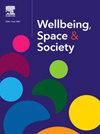新西兰环境学校的实施过程与实践
IF 2.2
Q2 GEOGRAPHY
引用次数: 0
摘要
这项定性研究探讨了与实施环境学校方法有关的实践和过程。环境学校旨在通过合作学习和行动,培育健康和可持续发展的社区。该方法已在新西兰奥特亚罗瓦的 1600 多所幼儿中心、小学、初中和高中实施。对全国 6 个地区的 26 名参与教师、学校领导、环境学校促进者和协调者进行了半结构式访谈。通过主题分析法对访谈记录进行了分析。制定了两个主题来定位和描述参与者实施该方法的经验:通过适应形成关系和通过批判性反思维持关系。这两个主题都说明了运用关系视角来理解系统方法实施的价值,特别是在学校环境中。我们的研究结果还表明,有必要采用系统方法来培养学校社区的健康和可持续发展,并对这种方法表示赞赏,将系统思维扩展到这些方法的实施中,有助于以有意义的方式将健康和可持续发展之间的相互联系变为现实。与会者认为,实施工作是一个旅程,随着时间的推移,会产生近期和远期的变化。进一步研究探索变革的机制以及这些机制如何导致成果,可能有助于转化实施的做法和过程。本文章由计算机程序翻译,如有差异,请以英文原文为准。
Process and practice in New Zealand Enviroschool implementation
This qualitative study explores the practices and processes associated with implementing the Enviroschools approach. Enviroschools aim to nurture healthy and sustainable communities through learning and taking action collaboratively. The approach is implemented in over 1600 early childhood centres, primary, intermediate and secondary schools in Aotearoa, New Zealand. Semi-structured interviews were undertaken with 26 participating teachers, school leaders and Enviroschool facilitators and co-ordinators across 6 regions nationwide. Transcripts were analysed through thematic analysis. Two themes were developed to situate and describe participants’ experiences of implementing the approach: forming relationships through attunement and sustaining relationships through critical reflection. Both of these themes speak to the value of applying a relational lens to understand the implementation of systems approaches, particularly in school settings. Our findings also suggest that there is a need for and an appreciation of systems approaches to nurturing wellbeing and sustainability in school communities and that extending systems thinking to the implementation of these approaches can help to bring the interconnections between health and sustainability to life in meaningful ways. The participants valued viewing and approaching implementation as a journey that develops proximal and more distant currents of change over time. Further research to explore the mechansisms of change and how these lead to outcomes may help to translate the practices and processes of implementation.
求助全文
通过发布文献求助,成功后即可免费获取论文全文。
去求助
来源期刊

Wellbeing Space and Society
Social Sciences-Social Sciences (miscellaneous)
CiteScore
2.70
自引率
0.00%
发文量
46
审稿时长
124 days
 求助内容:
求助内容: 应助结果提醒方式:
应助结果提醒方式:


